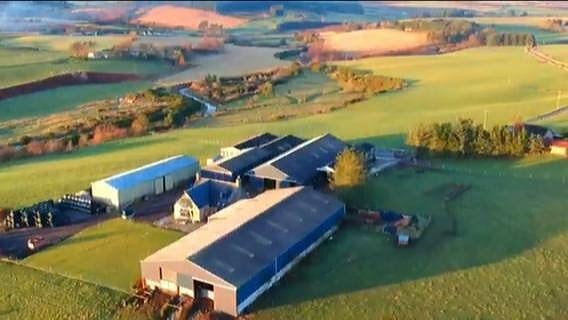
An artisan, family-run gin distillery in Scotland is using blockchain technology – essentially a digital ledger – to be completely clear about the amount, quality, and provenance of the water used in the creation of its award-winning spirits.
Roehill Springs is using the system, developed by CENSIS – Scotland’s innovation centre for sensing, imaging, and Internet of Things (IoT) technologies – and Aberdeen-based app developer TrackGenesis, in what is believed to be among the first direct uses of sensor data with a blockchain.
The project is part of the CENSIS IoT Evolve programme, funded by the Scottish Government and Highlands and Islands Enterprise (HIE), to support the development of IoT technologies by companies across the north of Scotland.
Roehill Springs is committed to using local ingredients, offering transparency to its customers, and being environmentally responsible. In discussions with CENSIS, the team identified combining the automation potential of IoT with the traceability and security provided by blockchain technology as the best way of ensuring full transparency for customers.
IoT sensor based-flow meters have been installed at the spring on the family farm and at its distillery. The data they produce is sent to a smartphone and tablet application via Bluetooth. The data from each flow meter is transferred to the private blockchain where it is held and can be accessed by customers through a QR code printed on each bottle of Roehill Springs gin, alongside information about the bottle’s other ingredients.
The system means there is complete accuracy and transparency – customers can be confident that water used in Roehill gin is high quality and sustainably sourced. It also enhances the authenticity of the data – the blockchain is tamper-proof and immutable – removes the time, errors, and cost of manual data entry, and helps the distillery track and reduce its water usage.
Roehill Springs is now looking at other ways blockchain might be used to make its business even more transparent for customers, such as energy monitoring.
Duncan Morrison, co-owner of Roehill Springs Distillery, said:
“We pride ourselves on the quality and provenance of our ingredients, sharing lots of information with our customers about the production of our gins. When we realised the potential blockchain offered in combination with IoT, we felt it was the right way forward for enhancing the transparency of what we do. While we have started with water usage, the project has been so successful we are looking at other ways the technology can be used to support our aims of being completely open with our customers about the products they consume and reducing our own environmental footprint.”
Ally Longmuir, business development manager at CENSIS, said:
“The system we have developed is one of the first to take data from sensors and put it directly into a blockchain. It also provides state-of-the-art security and traceability, meaning you can have complete confidence in the data being captured. It is a great use of these technologies in combination to increase transparency – and with that comes benefits from a brand perspective – and drive efficiency within the business, removing the need for manual processes and opening up the opportunity to reduce water use. We look forward to seeing Roehill Springs roll out the technology even further and hope it inspires other businesses to explore how they might be used in their own operations.”
Scottish Government Minister for Small Business, Innovation, Tourism and Trade, Richard Lochhead, said:
“This innovative technology exploits the potential of Internet of Things, the proliferation of products connected to the internet, to speed up and automate tasks.
“It adopts the traceability and security provided by blockchain technology to ensure full transparency for customers.
“Roehill Springs can use these insights to drive efficiency within the business and support sustainability by tracking and reducing the amount of water used.
“Realising the full benefits of the digital and data economy using technology is fundamental to our National Strategy for Economic Transformation. It is a critical part of our plans for a fair, green and sustainably growing economy.”




